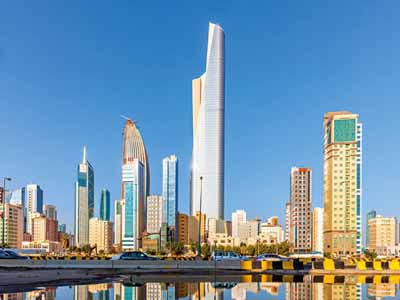
By Ben Garcia
KUWAIT: John was told to work from home during the lockdown, but he did not receive his salary. To add insult to injury, he was asked to hand over his ATM card in order for the company to deposit his salary in the bank and withdraw it a few moments later. So John ended up without any salary for four months, although he worked from home.
Many companies have fired thousands of employees, cut salaries of others and forced many to take unpaid leave to counter the financial impact of the coronavirus pandemic. The parliament discussed the problem in March on how to deal with the impact on workers, including proposals to reduce salaries of private sector employees by up to 50 percent, but the draft law to reduce salaries was rejected in August.
"This is really unfair. I work for nothing? I told them I am not giving them my ATM card, but the mandoub threatened I would be fired," John said, using the Arabic word for 'representative', referring to the company employee responsible for handling labor-related works. "So in April, May, June and July, the company did not give us any salary.
In May, they faced a problem at the [Public Authority for Manpower] because they could not renew their permit. To open the file, they needed to pay our salaries. So they took our ATM cards in order to deposit the money and withdraw it at the same time. It will appear to the bank that we got the salary, but the reality is it only passes through our bank accounts and we did not get anything."
Legal protection
Kuwait's labor law provides protection to private sector workers against non-payment of salary. Employees can report such cases to the Public Authority of Manpower, who would then contact the company in question and request bank statements of its employees to make sure that all staff are paid on time. If the company is found to have failed to pay its employees, the manpower authority suspends its file in the system, making them unable to process any labor-related transactions unless they pay their staff in full.
However, many companies circumvent this condition by depositing the salaries in employees' bank accounts, and then require staff to return the money back, often threatening them with termination and other retaliatory measures should they refuse to cooperate.
John works as a store controller at an electrical shop in Shuwaikh. He received his August salary, and said maybe he will get paid for September too. "But I've been working from April to July at home, yet I was not paid. They only started paying us by August, so my work during the time our company was closed is not counted? Why did they ask me to work then," he demanded.
Another case of non-payment of salary is of workers in the children entertainment sector. A majority of operations in this field, including cinemas, are yet to open. Zeny and her colleagues complained of non-payment of salaries since April. "They gave us half the salary in March and April, then from May to July, [we received] no salary.
We were called by the company to report to work at the end of July amid hopes of opening soon, but they were not allowed to reopen. So, it means we have no salary until now. We were told to accompany our mandoub to the ATM to withdraw money to appear that our company is paying our salaries, while in fact they us gave nothing. We have not received salaries from April to August," she said.
"It is painful to see your money in the bank, supposedly your salary from April to August, but they only deposited it in the bank and took it back," she said. "Don't we have families to feed? In an effort to earn some money, I go with my colleague to clean houses of Kuwaitis for KD 1 per hour. At least I can get something and thank God my husband is working now, so he is paying for rent and food," she said.
30 percent off
Lito, another worker, mentioned his company took at least 30 percent of their salaries from April to July 2020. "My company deducted 30 percent of my salary from April to June. For me, I understand their decision on the matter - it's about money and business. They also have to balance expenses against profit. However, I hope we can get the money later, when the company gets business back," he said.
Until now there are raging debates on whether employees are entitled to wages during the mandatory closure of private establishments by the state as a precautionary measure following the outbreak of COVID-19. A parliament committee had discussed a draft law stipulating that those affected by the anti-coronavirus measures including those who had to completely or partially shut their businesses can agree with employees to reduce their salaries throughout the suspension period up to 50 percent. However, the draft law was not approved, which means all employers should follow and adhere to the Kuwait labor law.
There are no official statistics for the number of workers who have lost their jobs in Kuwait during the COVID-19 pandemic crisis, but unofficial estimations indicate that private companies have already terminated hundreds of thousands of employees, a vast majority of whom are expatriates, or have taken other measures such as cutting employees' salaries and forcing many to take unpaid leaves.










